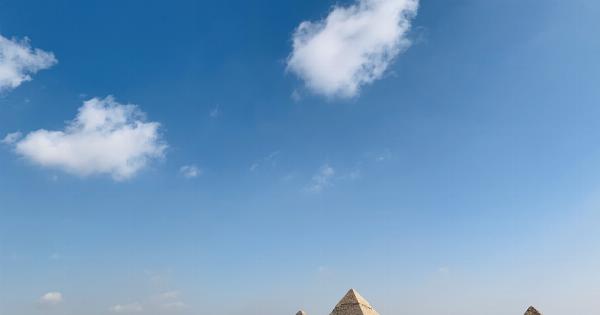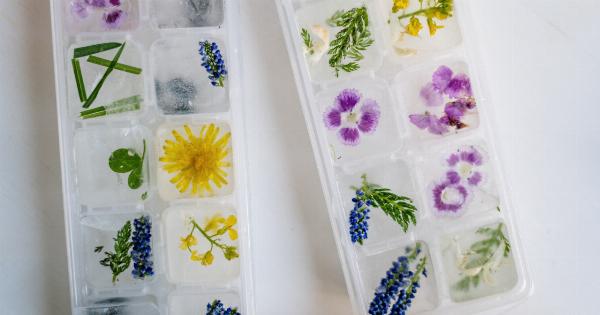During the scorching summer months, many individuals experience a peculiar and painful condition known as kidney stones. These small, hard deposits that form in the kidneys can cause excruciating pain and discomfort.
Surprisingly, there is a strong correlation between the incidence of kidney stones and hot weather. In this article, we will explore the summer-kidney stone connection, delve into the causes and symptoms of kidney stones, and discuss preventive measures individuals can take to avoid falling victim to this painful condition.
What are Kidney Stones?
Kidney stones are solid mineral and acid salt deposits that form in the kidneys. They are typically composed of calcium oxalate, calcium phosphate, uric acid, and cystine.
The size of kidney stones can vary, ranging from as small as a grain of sand to as large as a golf ball. These stones can obstruct the urinary tract, causing severe pain and other complications.
The Summer-Kidney Stone Connection
Research studies have shown a clear association between hot weather and an increased likelihood of kidney stone formation. The prevalence of kidney stones tends to be higher in regions with hotter climates, such as desert areas.
The reasons for this correlation can be attributed to several factors.
Dehydration
One of the primary reasons why hot weather contributes to kidney stone formation is dehydration. During the summer months, individuals are more prone to sweating and increased fluid loss.
When the body becomes dehydrated, the urine becomes concentrated with higher levels of minerals and toxins. This concentrated urine can facilitate the formation of kidney stones.
Reduced Urine Volume
In addition to dehydration, hot weather often leads to a decrease in urine volume. As the body sweats more in an attempt to regulate its temperature, less fluid remains available for the production of urine.
With reduced urine volume, minerals and substances that can form kidney stones become more concentrated, increasing the risk of stone formation.
Increased Calcium Excretion
Calcium is one of the primary components of kidney stones. In hot weather, individuals tend to excrete a higher amount of calcium in their urine. The increased excretion of calcium can promote the formation of calcium-based kidney stones.
Furthermore, when calcium is excreted in higher concentrations, it is more likely to combine with other substances in the urine and form larger stone formations.
Poor Dietary Habits
During the summer, people often indulge in unhealthy dietary habits. The consumption of excessive amounts of salt, protein, and oxalate-rich foods can contribute to the development of kidney stones.
Additionally, the preference for cold beverages instead of water can further exacerbate dehydration, leading to an increased risk of stone formation.
Symptoms of Kidney Stones
The symptoms of kidney stones can vary depending on the size and location of the stone within the urinary tract. Common signs and symptoms include:.
1. Severe Pain
Kidney stones can cause intense pain, often described as one of the most excruciating types of pain experienced by individuals. The pain typically starts in the back or side below the ribs and radiates to the lower abdomen and groin area.
2. Hematuria
Blood in the urine, known as hematuria, is another common symptom of kidney stones. The presence of blood can give the urine a pink, red, or brown color.
3. Frequent Urination
Individuals with kidney stones may experience a strong urge to urinate more frequently. The urge to urinate may be accompanied by only small amounts of urine being passed.
4. Nausea and Vomiting
Kidney stones can cause discomfort and nausea, which may lead to vomiting in some cases.
5. Cloudy or Foul-Smelling Urine
People with kidney stones may notice that their urine appears cloudy or has a strong, unpleasant smell.
Prevention and Treatment
Fortunately, there are several measures individuals can take to prevent the formation of kidney stones and alleviate their symptoms. Some preventive measures include:.
1. Stay Hydrated
Drinking an adequate amount of water is crucial for preventing dehydration and reducing the concentration of minerals in the urine. It is recommended to consume at least 8-10 glasses of water per day, especially during hot weather.
2. Reduce Sodium Intake
High sodium intake can increase the excretion of calcium in the urine, leading to stone formation. Limiting the consumption of processed and fast foods can help reduce sodium levels in the body.
3. Maintain a Balanced Diet
Eating a balanced diet that includes a variety of fruits, vegetables, and whole grains can help prevent kidney stone formation. Limiting the intake of oxalate-rich foods such as spinach, beetroot, and chocolate can also be beneficial.
4. Avoid Excessive Protein
Consuming excessive amounts of animal protein can increase the excretion of calcium and other substances in the urine, promoting stone formation. Moderation is key when it comes to protein consumption.
5. Seek Medical Advice
If you suspect you have kidney stones or experience severe symptoms, it is essential to seek medical advice.
A healthcare professional can diagnose the condition and provide appropriate treatment options, including pain relief and, in severe cases, surgical intervention.
Conclusion
The summer-kidney stone connection is a pertinent issue that affects many individuals during the hot months.
Understanding the causes, symptoms, and preventive measures of kidney stones can help individuals avoid the pain and discomfort associated with this condition. By staying hydrated, maintaining a balanced diet, and paying attention to their overall health, individuals can reduce their risk of developing kidney stones and enjoy a healthier summer.






























